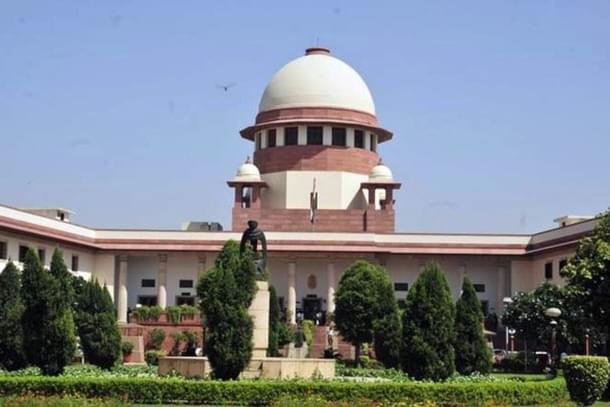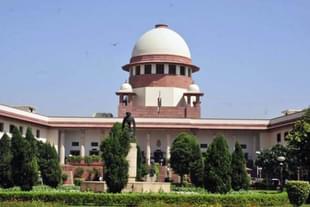News Brief
'Centre Has Transgressed Its Legislative Power': PIL In SC Challenges Constitutional Validity Of Provision In Places Of Worship Act
Arjun Brij
Mar 07, 2025, 12:23 PM | Updated 12:23 PM IST
Save & read from anywhere!
Bookmark stories for easy access on any device or the Swarajya app.


A Public Interest Litigation (PIL) has been filed in the Supreme Court challenging the constitutional validity of a key provision in the Places of Worship (Special Provisions) Act, 1991, which mandates that the religious character of any place of worship must remain as it was on 15 August 1947.
The petitioner, Nitin Upadhyay, a law student, has specifically contested Section 4(2) of the Act, which bars legal proceedings aimed at altering the religious nature of a site, reported Business Standard,
The plea argues that this restriction infringes upon the judiciary's power and deprives citizens of their fundamental right to seek legal remedies.
"The Centre has transgressed its legislative power in barring the judicial remedy, which is a basic feature of the Constitution," the petition states.
It further asserts, "It is well established that the right to judicial remedy by filing suit in a competent court, cannot be barred and the power of courts cannot be abridged and such denial has been held to be violative of basic feature of the constitution, beyond legislative power."
The plea, filed through advocate Shweta Sinha, said the Act mandated preservation and maintenance of the religious character of places of worship without barring changes in the "structure, edifice, construction or building" in these places.
"Structural change is permissible to restore the original religious character of the place," the petition argues.
Additionally, it clarifies that the law does not prohibit scientific or documentary surveys to establish the historical religious identity of a site.
The Supreme Court had earlier in February expressed displeasure over the growing number of petitions on the 1991.
The court said that a three-judge bench would hear the pending cases in April.
The court had, through its 12 December 2024 order, effectively put a halt to around 18 lawsuits filed by Hindu parties seeking surveys to determine the original religious identity of 10 mosques, including the Gyanvapi mosque in Varanasi and the Shahi Idgah Masjid in Mathura.
The law prohibits conversion of any place of worship and provides for the maintenance of the religious character of any place of worship as it existed on 15 August 1947, with the Ram Janmabhoomi-Babri Masjid dispute at Ayodhya being the only exception.
Arjun Brij is an Editorial Associate at Swarajya. He tweets at @arjun_brij




